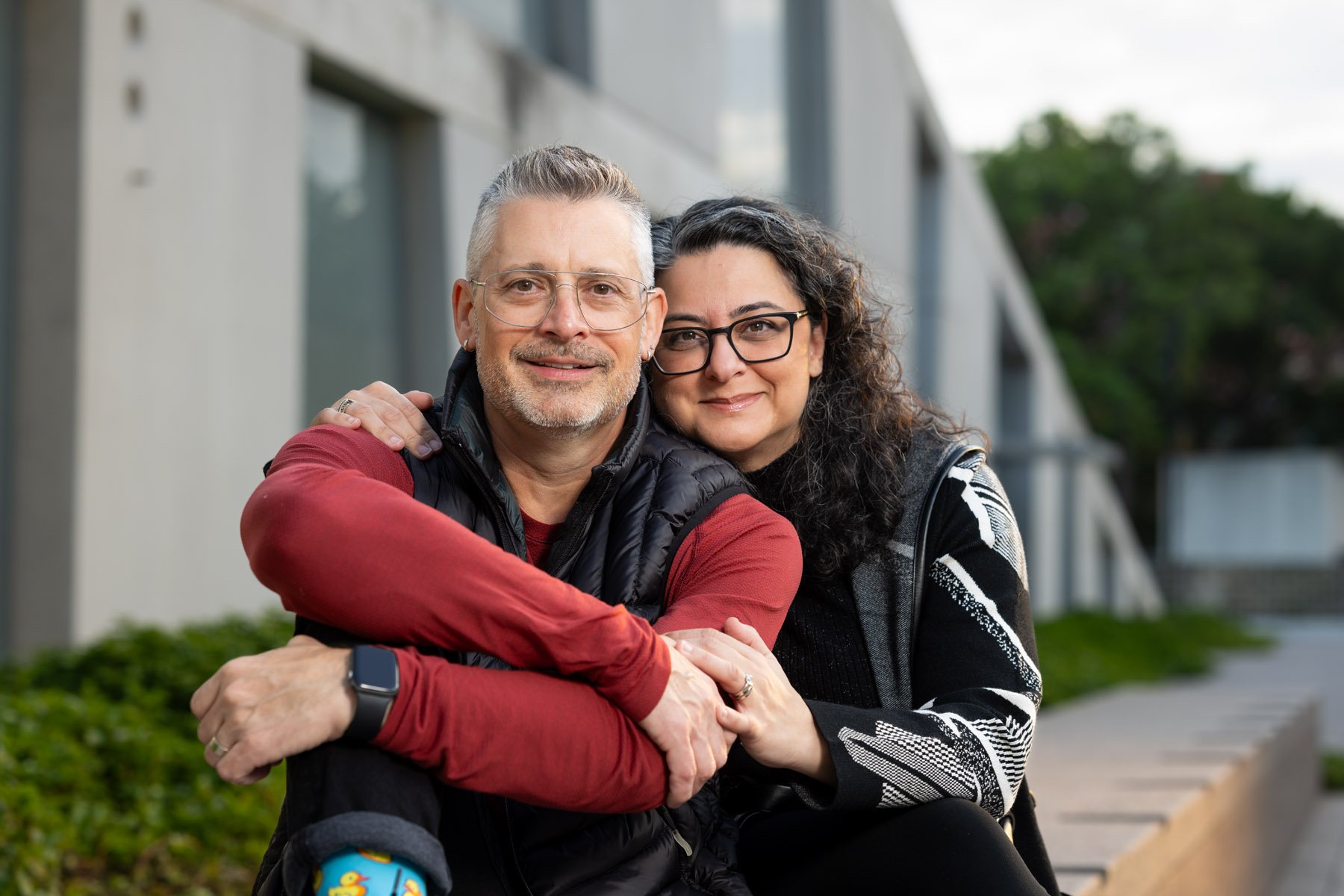Throat cancer survivor happy to sing again
- Diseases
- Acoustic Neuroma (14)
- Adrenal Gland Tumor (24)
- Anal Cancer (66)
- Anemia (2)
- Appendix Cancer (16)
- Bile Duct Cancer (26)
- Bladder Cancer (68)
- Brain Metastases (28)
- Brain Tumor (230)
- Breast Cancer (718)
- Breast Implant-Associated Anaplastic Large Cell Lymphoma (2)
- Cancer of Unknown Primary (4)
- Carcinoid Tumor (8)
- Cervical Cancer (154)
- Colon Cancer (164)
- Colorectal Cancer (110)
- Endocrine Tumor (4)
- Esophageal Cancer (42)
- Eye Cancer (36)
- Fallopian Tube Cancer (6)
- Germ Cell Tumor (4)
- Gestational Trophoblastic Disease (2)
- Head and Neck Cancer (6)
- Kidney Cancer (124)
- Leukemia (344)
- Liver Cancer (50)
- Lung Cancer (288)
- Lymphoma (284)
- Mesothelioma (14)
- Metastasis (30)
- Multiple Myeloma (98)
- Myelodysplastic Syndrome (60)
- Myeloproliferative Neoplasm (4)
- Neuroendocrine Tumors (16)
- Oral Cancer (100)
- Ovarian Cancer (170)
- Pancreatic Cancer (164)
- Parathyroid Disease (2)
- Penile Cancer (14)
- Pituitary Tumor (6)
- Prostate Cancer (144)
- Rectal Cancer (58)
- Renal Medullary Carcinoma (6)
- Salivary Gland Cancer (14)
- Sarcoma (236)
- Skin Cancer (296)
- Skull Base Tumors (56)
- Spinal Tumor (12)
- Stomach Cancer (60)
- Testicular Cancer (28)
- Throat Cancer (90)
- Thymoma (6)
- Thyroid Cancer (98)
- Tonsil Cancer (30)
- Uterine Cancer (78)
- Vaginal Cancer (14)
- Vulvar Cancer (18)
- Cancer Topic
- Adolescent and Young Adult Cancer Issues (20)
- Advance Care Planning (10)
- Biostatistics (2)
- Blood Donation (18)
- Bone Health (8)
- COVID-19 (362)
- Cancer Recurrence (120)
- Childhood Cancer Issues (120)
- Clinical Trials (626)
- Complementary Integrative Medicine (24)
- Cytogenetics (2)
- DNA Methylation (4)
- Diagnosis (230)
- Epigenetics (6)
- Fertility (64)
- Follow-up Guidelines (2)
- Health Disparities (14)
- Hereditary Cancer Syndromes (124)
- Immunology (18)
- Li-Fraumeni Syndrome (8)
- Mental Health (118)
- Molecular Diagnostics (8)
- Pain Management (62)
- Palliative Care (8)
- Pathology (10)
- Physical Therapy (18)
- Pregnancy (18)
- Prevention (896)
- Research (390)
- Second Opinion (74)
- Sexuality (16)
- Side Effects (604)
- Sleep Disorders (10)
- Stem Cell Transplantation Cellular Therapy (216)
- Support (404)
- Survivorship (322)
- Symptoms (184)
- Treatment (1774)
Throat cancer survivor now singing MD Anderson’s praises
3 minute read | Published September 25, 2017
Medically Reviewed | Last reviewed by an MD Anderson Cancer Center medical professional on September 25, 2017
Music has always been a part of James McManus’ life. The middle son in a family of musicians, he was the lead singer of a rock ‘n roll band with his brothers in high school, and continued performing in one form or another throughout adulthood.
In the summer of 2015, though, the lifelong baritone feared his days at the microphone were over.
James came down with a hoarse throat, and it never really went away. “It got to where I couldn’t sing and then to where I could barely talk,” he says.
James saw several doctors close to his home in Tennessee, but they couldn’t even seem to identify the problem, much less resolve it. James was convinced it was something serious, so he couldn’t just drop it. Then he remembered how well he’d done at MD Anderson in 2007, when he’d faced — and overcome — stage III colorectal cancer with Imad Shureiqi, M.D. James decided to give it another try. He called for an appointment.
A throat cancer diagnosis
At MD Anderson, James met with Stephen Lai, M.D., Ph.D., who provided him with a definitive diagnosis: stage I squamous cell carcinoma of the glottis, or vocal cords.
James’ throat cancer was unrelated to his previous colorectal cancer, but he was still concerned. His treatment, under William Morrison, M.D., called for 33 doses of radiation therapy delivered directly to his vocal cords. There was a chance James might never speak — much less sing — again.
To give himself the best possible chance of success, James followed his doctors’ orders to the letter, gargling a solution of baking soda, salt and water up to 10 times a day during his radiation treatment. “I did exactly what they told me to do,” he says. “I’m an engineer, and I want things to be right. So if people tell me something, and I know they’re the experts, I listen.”
James’ diligence paid off: “The doctors said that mine was the best result they’d ever seen on vocal cords.”
Another positive outcome
James did lose his voice due to his treatment for about three months in late 2015. The radiation also made his throat so sore, that at one point, “I couldn’t swallow a little pill as big as a match head.”
But James’ voice began returning in early 2016, and he has shown no evidence of disease since August 2015. Today, he has no lingering side effects from treatment, except for a bit more phlegm in his throat. James is still singing for charities and nursing home residents. He even recorded a CD of himself singing last year, so his speech pathologists could appreciate just how much his voice has recovered.
“I lost a little range on the high notes, but the low notes are all coming back,” James says. “I know how high I can get before my voice breaks. And the more I sing, the better it gets.”
Request an appointment at MD Anderson online or by calling 1-833-670-2212.
Related Cancerwise Stories

If people tell me something and I know they’re the experts, I listen.
James McManus
Survivor






